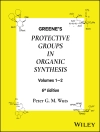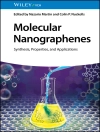This book highlights the sustainable aspects of fashion and textiles in Latin America and discusses how the manufacturing and consumption of textile products and fashion are significant sources of environmental damage. It addresses important issues of water and energy consumption in the textile and fashion industry and using case studies presents how social responsibilities in consumer behavior can help in minimizing these environmental issues for a better future.
Inhoudsopgave
Socioeconomic and Environmental Aspects of the Production of Silk Cocoons in the Brazilian Sericulture.- Adapting Sustainable Dsign Assessment tools for Local Development. Some insights over Argentina’s Clothing Industry.- Nongovernmental Organization Support for Sustainable Artisan Business.- Flax Fibre Extraction to Textiles and Sustainability: A Holistic Approach.- Strategic Design for Social Innovation in the Fashion System: the Sustainable Fashion Ecosystem Case.- Sustainable Latin America Aesthetic.- Public Policy and Legislation in Sustainable Fashion.- Incorporating Consumer Perspective into the Value Creation Process in the Fashion Industry: A path to circularity.- Cultural perspectives for Fashion Sustainability: Learning from Brazil.- Brazilian Organic Cotton Network: sustainable driver for the textile and clothing sector.- Sustainable fashion.- Upcycling as a tool for Participatory Critical Reflection.
Over de auteur
Miguel Angel Gardetti (Ph.D.), founded the Centre for Study of Sustainable Luxury, first initiative of its kind in the world with an academic/research profile. He is also the founder and director of the “Award for Sustainable Luxury in Latin America”. For his contributions in this field, he was granted the “Sustainable Leadership Award (academic category), ” in February, 2015 in Mumbai (India). He is an active member of the Global Compact in Argentina –which is a United Nations initiative-, and was a member of its governance body –the Board of The Global Compact, Argentine Chapter – for two terms. He was also part of the task force that developed the “Management Responsible Education Principles” of the United Nations Global Compact. This task force was made up of over 55 renowned academics worldwide pertaining to top Business Schools.
Rosa Patricia Larios-Francia, Ph D Candidate in Strategic Management with mention in Business Management and Sustainability, by the Consortium of Universities of Peru. Master’s Degree in Industrial Engineering, Industrial Engineer, with a specialization diploma in Innovation Management.Research directed to the management of the MSME Sector, Sustainability, textile sector, Cluster and Innovation, Humanitarian Logistics. Founder and director of the Center for Textile Studies and Innovation at the University of Lima. Researcher and University Professor in the career of Industrial Engineering, more than 20 years of experience in the textile and apparel sector; member of the Technical Committees of the National Quality Institute (INACAL): Management and Quality Assurance; Management of research, technological development and Innovation, Management of MSMEs and Textile and Apparel. Member of the Sustainable Fashion Cluster.












